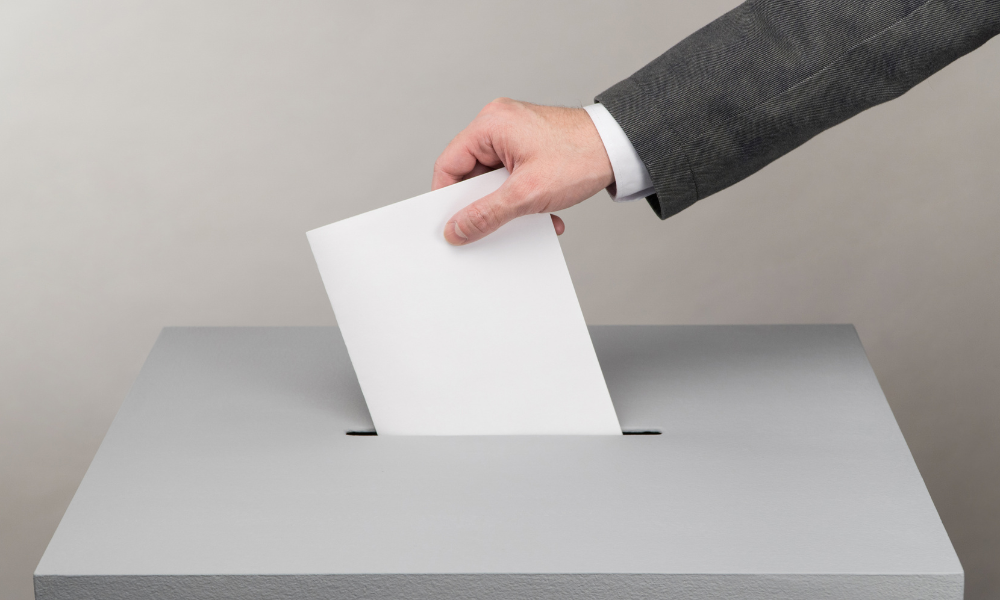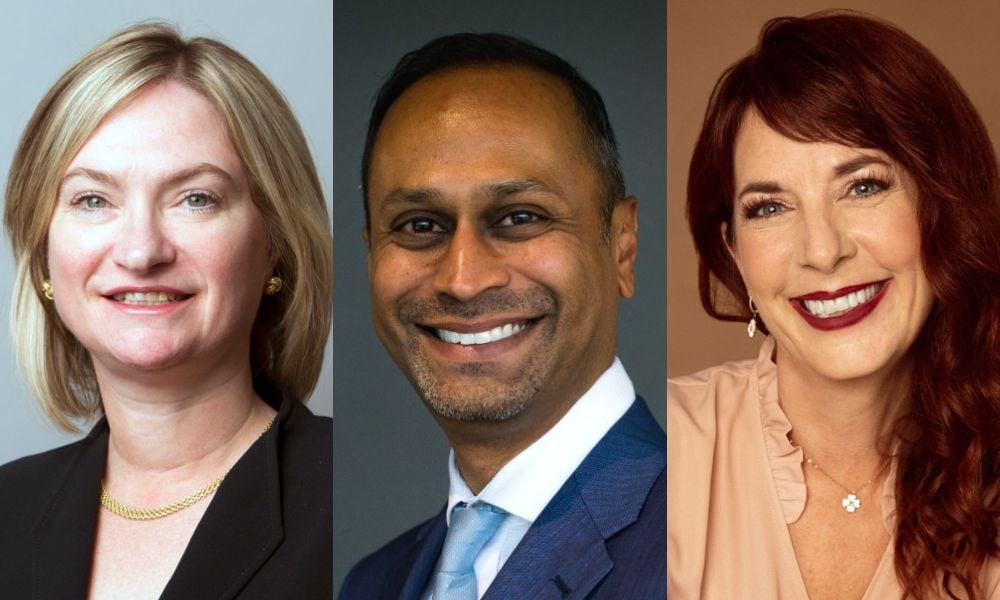'We can't sit as men off in a corner in a boardroom'

When considering substantive changes in terms of true gender equality, men must be a part of the solution, especially because of the leadership role they continue to play, according to a recent panel discussion.
“When we talk about men’s engagement, we know that it is absolutely critical. Research shows that only 31 per cent of organizations report progress when men are not involved and when they are involved, we arrive at 96 per cent,” says Ludo Gabriele, director, Men Advocating Real Change (MARC). “This idea of men’s engagement is key in the way gender partnership is framed because of the fact that men hold still the vast majority of management positions in organizations, in government.”
Gabriele, along with host Vandana Juneja, executive director, Catalyst and John Wiggins, VP organization culture, at Toronto Raptors and Maple Leaf Sports and Entertainment, spoke on the topic of Gender Partnerships at Work: The Important Role that Men Need to Play, at the Catalyst Honours Conference held online.
Men’s past involvement
He highlighted the traditional barriers faced by men who wished to enact change in their organizations but were unaware of just how to go about it.
“Number one is just awareness. The lack of awareness [of] what women go through from a men’s perspective, even though this is something that is becoming less common especially in the post #MeToo era: there’s been this huge awakening," he says.
As well, the problem has been thought of as not something men should worry about, which also contributed to the crippling inertia in the past, says Gabriele.
“This issue [has been] historically framed as a women’s issue: men have been absent from it and the fear component is really multifold but one of the main ones is about the fear of making mistakes, of getting uncomfortable, of saying the wrong thing. And there is also a fair amount of fear around losing status; the zero-sum thinking, if women are winning, men are losing and therefore from a social perspective, there is something to lose so that also plays into the research findings.”
Some improvement?
However, in some organizations, progress is being made, according to Wiggins, who highlighted the first-ever all women’s NBA television broadcast, that took place in the 2020-2021 season during a Toronto Raptors’ game.
“It was a historical moment in the NBA and it allowed us to position women in roles that they’ve been working very hard towards… a lot of them have now actually implemented into full-time positions within our Raptors and other broadcasts so [it was] really good to see that,” says Wiggins.
In addition, the company also made “intentional” strides to bring forward previously underserved members of the community into the professional hockey family.
“Our Maple Leafs team, they stepped up and they made a pledge with respect to the Black Girl Hockey pledge and that was a strong commitment for not only just including the intersection of the Black community into hockey but specifically for women. So we’re definitely looking to see how many different ways across all of our teams that we can uniquely position ourselves in this world of sports where women and other genders haven’t always been,” says Wiggins.
To enact that change, sometimes organizational culture needs to take the first step, says Gabriele and frame it as a leadership imperative, so that all employees feel comfortable in the day-to-day workplace.
“We’ve found that 86 per cent of men feel committed to interrupting sexism in workplace; switching when they see something happening. But when we rated confidence in interrupting this person, that drops to 31 per cent. And the difference between those two numbers is usually organizational culture that make it ‘dangerous’ for people to speak up around workplace issues or police-related incidents,” he says. “And that’s why a commitment at an organizational level from a cultural perspective and from building inclusion as part of the culture is important.”
As a leading Canadian sports organization, MLSE must take a leadership role, says Wiggins. “We do that all the time and specifically in sports, you’re always looking to see how you can get better as an athlete, as a coach as a team and I think we needed to adapt that.”
With that in mind, MLSE recently established an all-women’s employee inclusion group and “part of that was ensuring and encouraging men to be a part of that group so they could hear the experiences, the opportunities, as well as, as some of the requests that women have within our organization,” says Wiggins.
“We can’t sit as men off in a corner in a boardroom and come up with a plan and then present it to women as if to say we know everything that they need and they want, we’ve got to listen to them.”
Recently we looked at nine ways to avoid discrimination in recruitment but also found that many employers don’t follow through on DEI initiatives.




